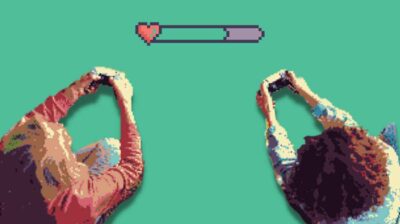What is Cognitive Behavioural Therapy (CBT)?
Information on what Cognitive Behavioural Therapy (CBT) involves.

Cognitive Behavioural Therapy (CBT) is a widely used, evidence-based type of psychological therapy that helps people manage a range of physical and mental health issues, from anxiety and depression to sleep problems.
While different types of CBT have been designed to target specific challenges, all CBT-based techniques work on the following assumptions:
- Unhelpful thoughts lead to difficult feelings, such as anger, guilt, or sadness
- These feelings, in turn, produce problematic behaviours or responses
- Problematic behaviours reinforce the unhelpful thoughts
The core of CBT involves learning to recognise these unhelpful thinking patterns, known as cognitive distortions, and challenging them. According to the theories underlying CBT, changing the way we think can positively influence how we feel and behave.
If you would like to learn more about the practice of challenging your cognitive distortions, you may be interested in reading our factsheets on common thought patterns and how to change them. However, it can often be difficult to spot your own cognitive distortions and you may benefit from working with a CBT-trained therapist.
CBT involves recognising your unhelpful thinking patterns
Some types of cognitive distortions that can negatively impact your life are listed below.
Overgeneralisation
Overgeneralisation happens when you draw a broad conclusion based on a single event or experience. For example, if you fail one test in a specific subject, you might think you’re terrible at all subjects, even though you had difficulty in only one area.
Jumping to conclusions
You are jumping to conclusions when you assume you know what will happen or what someone else is thinking without any real evidence. You might believe a friend is upset with you without asking them, which can lead to misunderstandings and stress.
Mind-reading
Mind-reading is when you think you know what someone else is thinking, often assuming they have negative thoughts about you. This can cause you to feel anxious or hurt without any proof that your assumption is true.
Fortune-telling
Fortune-telling involves predicting negative outcomes as if they are certain to happen. You might convince yourself that you’ll fail an exam or a social event will go badly, which can lead to feelings of anxiety.
Catastrophising
This distortion makes you believe that the worst possible outcome is bound to happen, even if it’s unlikely. For example, if you make a small mistake, you might think it’s going to ruin everything, which can make you feel overwhelmed.
“Should” and “must” statements
These are rigid rules you set for yourself or others, like thinking you “should” always be perfect or that others “must” act a certain way. When these expectations aren’t met, it can lead to disappointment and frustration.
Labelling
Labelling is when you define yourself or others by a single negative trait or event. For instance, if you make a mistake, you might label yourself as a “failure,” which can lower your self-esteem.
All-or-nothing thinking
This type of thinking makes you see things in extremes, with no middle ground. You might think you’re either a total success or a complete failure, without recognising any in-between.
Negative filtering
Negative filtering is when you focus only on the bad aspects of a situation, ignoring any positives. This can make you feel down, even if there are good things happening too.
Magnification
Magnification involves blowing things out of proportion, making problems or faults that you think you have seem much bigger than they really are. This can lead to increased anxiety or stress over situations that might not be as bad as they seem.
Minimisation
Minimisation is the opposite of magnification, where you downplay or ignore achievements, positive qualities, or even the emotional impact of traumatic events. This can stop you from appreciating your successes and expressing self-compassion in the aftermath of challenging experiences.
Emotional reasoning
Emotional reasoning is when you believe something must be true just because you feel it strongly. For example, if you feel anxious, you might assume a situation is dangerous, even if there is no real threat.
CBT involves challenging your unhelpful thinking patterns
Strategies to change thinking patterns centre around reality-testing. Reality testing is the process of evaluating whether your thoughts accurately reflect the facts of a situation. One of the main ways CBT therapists help you check your thoughts against reality is by using a strategy called “cognitive restructuring.”
Cognitive restructuring is a technique that involves identifying and challenging unhelpful or distorted thoughts, then replacing them with more balanced and accurate ones.
Questions to test your thoughts against reality using CBT methods
Here are some questions you might ask yourself when you recognise that your perception of a situation may be distorted (i.e., not true to reality):
- Am I confusing a thought with a fact?
- Am I jumping to conclusions?
- Am I assuming that my view of the situation is the only one possible?
- Am I using ultimatum words (e.g., always/never, everything/nothing) in my thinking?
- Am I basing my opinion of myself/another person on a single event?
- Am I concentrating solely on my weaknesses, forgetting my strengths?
- Am I blaming myself for something that lies outside of my control?
- Am I expecting perfection from myself/another person?
- What are the advantages and disadvantages of thinking in this way?
- Am I overestimating the probability that a bad thing will happen?
- Am I assuming that I have no power to change the situation?
- Am I predicting the future with a sense of certainty?
- Am I magnifying the importance of events?
How to challenge your biased thoughts or beliefs through CBT
In general, the ability to challenge our distortions by checking them against objective reality depends on three key conditions. Each of these conditions can be developed with practice and effort:
- Expanding your interpretations: By broadening the way you interpret situations, you can gain a deeper understanding of other people’s behaviours and motivations. This helps you see things from multiple perspectives, reducing the likelihood of jumping to negative conclusions.
- Building self-esteem: Improving your self-esteem involves developing a more accurate and positive view of your strengths and problem-solving abilities. When you have confidence in yourself, you’re less likely to fall into the trap of negative self-labelling or doubt.
- Developing positive coping strategies: Learning effective coping strategies helps you manage difficult situations rather than avoiding them. This includes problem-solving skills that allow you to face challenges head-on, leading to better outcomes and reduced stress.
More detailed information about each of these conditions, and what they might mean for you, is provided below.
Expanding your interpretations during CBT
Expanding your interpretations of situations or people depends on improving your awareness of other people’s behaviours and intentions. By becoming more aware or even by asking for clarification, we can better understand the wide range of possible feelings, motivations, and intentions that drive other people’s actions and words.
When we lack this awareness, we may be more likely to interpret others’ actions or words negatively, especially when the situation is ambiguous (i.e., does not have a clear meaning). This tendency to interpret ambiguous situations or actions as threatening is called the negative interpretation bias.
As we gain a better understanding of others and ourselves, we learn to interpret their actions less rigidly, which helps us move away from automatically assuming the worst or jumping to negative conclusions. This frees us from our bias toward negative or catastrophic interpretations, allowing for a more balanced view of situations.
Building self-esteem during CBT
CBT can promote self-esteem by helping us to construct a more accurate picture of our strengths and abilities. Many of us struggle with low self-esteem for a variety of reasons, including traumatic childhood experiences, negative self-talk, ongoing mental health difficulties like depression and anxiety, or comparing ourselves to others and feeling inadequate.
When our self-esteem is low, we are more likely to engage in problematic behaviours, such as:
- Avoiding difficult situations
- Procrastinating
- Sabotaging our own success
- Pushing ourselves to unrealistic standards
- Accepting mistreatment in our personal relationships
Changing these behaviours, which are likely to have a negative impact on our lives, starts with changing the way we relate to ourselves. By using CBT techniques like cognitive restructuring, we can challenge negative or critical thoughts about ourselves and start recognising our strengths and abilities.
Beyond helping us to recognise our strengths and practising self-care, CBT can promote self-esteem through exercises that increase our self-efficacy. Unlike self-esteem, which is a person’s judgement of their own value or worth, self-efficacy is confidence and trust in one’s ability to control and effectively manage life. As we develop healthier ways of coping and consistently manage difficulties, our self-efficacy—and, in turn, our self-esteem—can grow.
Ultimately, CBT may foster this independent ability to cope in ways that support our mental and physical wellbeing, helping us build a stronger, more positive sense of self.
Behavioural Activation
Behavioural Activation is often an important part of CBT, especially for those dealing with depression. This approach helps people use their behaviours to improve their emotional state. It focuses on scheduling activities to encourage participation in enjoyable, meaningful, or important tasks that someone might be avoiding or finding difficult to engage with. This can be particularly beneficial for people who are experiencing low mood or depression. These individuals often experience a drop in interest in hobbies, social interactions, or other activities that once brought them joy and fulfillment. The goal is to help individuals engage more with life and improve their mood.
Developing positive coping strategies through CBT
In CBT, the focus is on helping you develop strategies to handle problems independently. While a CBT practitioner usually provides guidance and support through written exercises, it’s up to the individual to practise these techniques between sessions. The goal is to consistently use these new strategies, such as reframing unhelpful thoughts, until the new alternatives replace old, automatic coping habits like avoiding situations or thinking the worst.
Exposure-based CBT techniques
Depending on the nature of your difficulties, your CBT therapist might suggest gradually exposing yourself to the situations and types of social interactions you fear. This approach helps you slowly reduce your fear over time. For instance, you might role-play difficult interactions or use virtual environments to simulate challenging situations in a controlled, safe way. This helps you build confidence without becoming overwhelmed.
Regardless of which techniques are used, the goal remains the same: learning to develop the inner resources or skills necessary to confront your fears without resorting to distorted thinking patterns or avoidance. While comforting in the short term, avoidance tends to reinforce our distorted thinking by making us believe that the thing we are avoiding is more threatening than it really is.
Mindfulness-based CBT techniques
In addition to traditional exposure therapy (i.e., gradually being exposed to your fears under the supervision of a qualified mental health professional), CBT can also incorporate mindfulness-based techniques for managing anxiety. Research shows that combining CBT methods, like challenging negative thoughts, with mindfulness can have positive effects on a person’s mental wellbeing by calming the body and mind.
If you want to learn more about mindfulness and its potential positive health effects, you may be interested in reading our factsheet on mindfulness-based exercises. If you feel the need to access mental health support, visit our factsheet on affordable treatment for mental health. Here, you’ll find a list of free helplines and messaging support services, mental health charities, and low-cost counselling options. If you would like to find a private counsellor or psychotherapist, take a look at our factsheet on how to access private counselling and psychotherapy in Ireland.
Feeling overwhelmed and want to talk to someone?
- Get anonymous support 24/7 with our text message support service
- Connect with a trained volunteer who will listen to you, and help you to move forward feeling better
- Whatsapp us now or free-text SPUNOUT to 50808 to begin.
- Find out more about our text message support service
If you are a customer of the 48 or An Post network or cannot get through using the ‘50808’ short code please text HELLO to 086 1800 280 (standard message rates may apply). Some smaller networks do not support short codes like ‘50808’.






